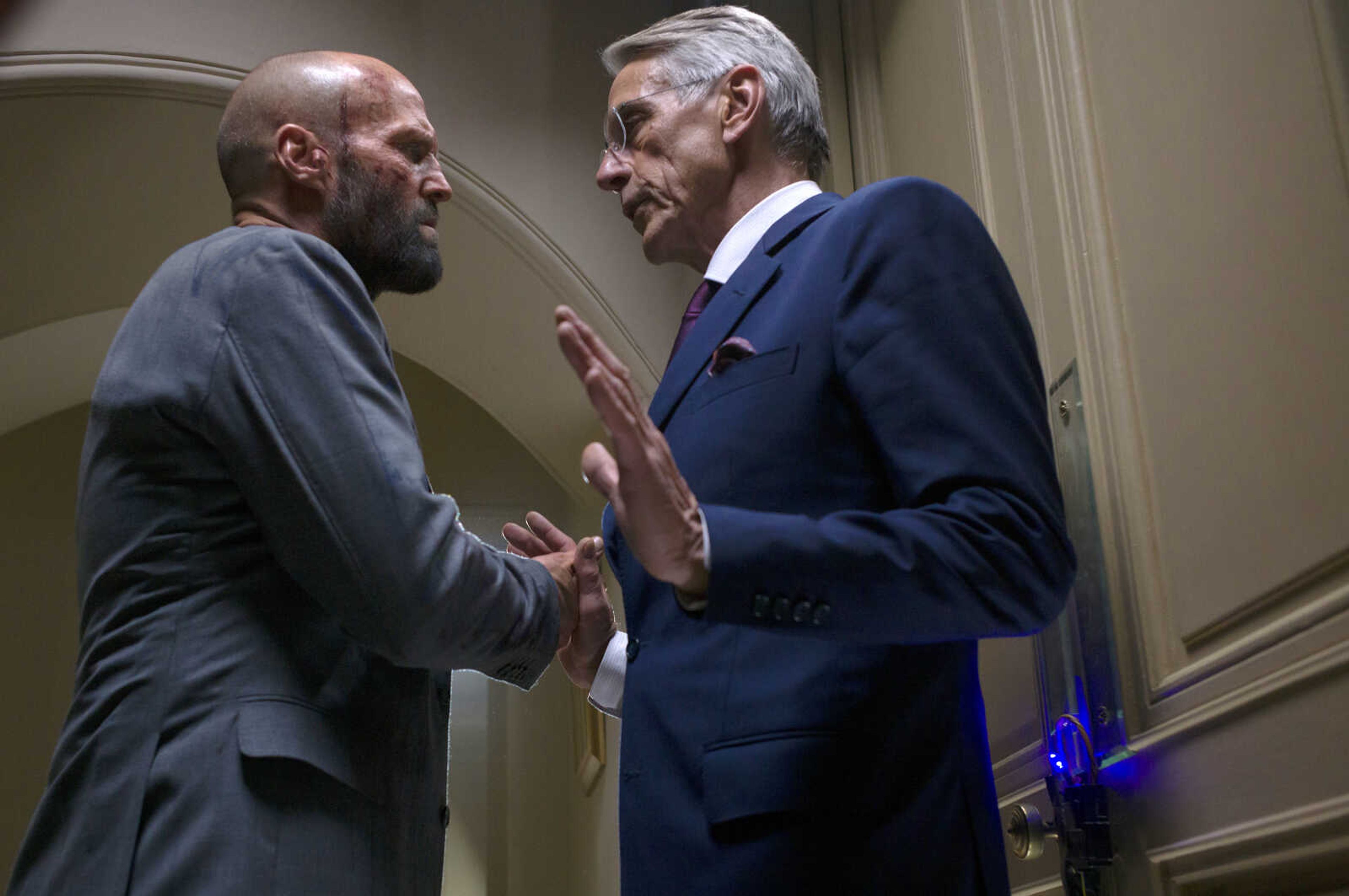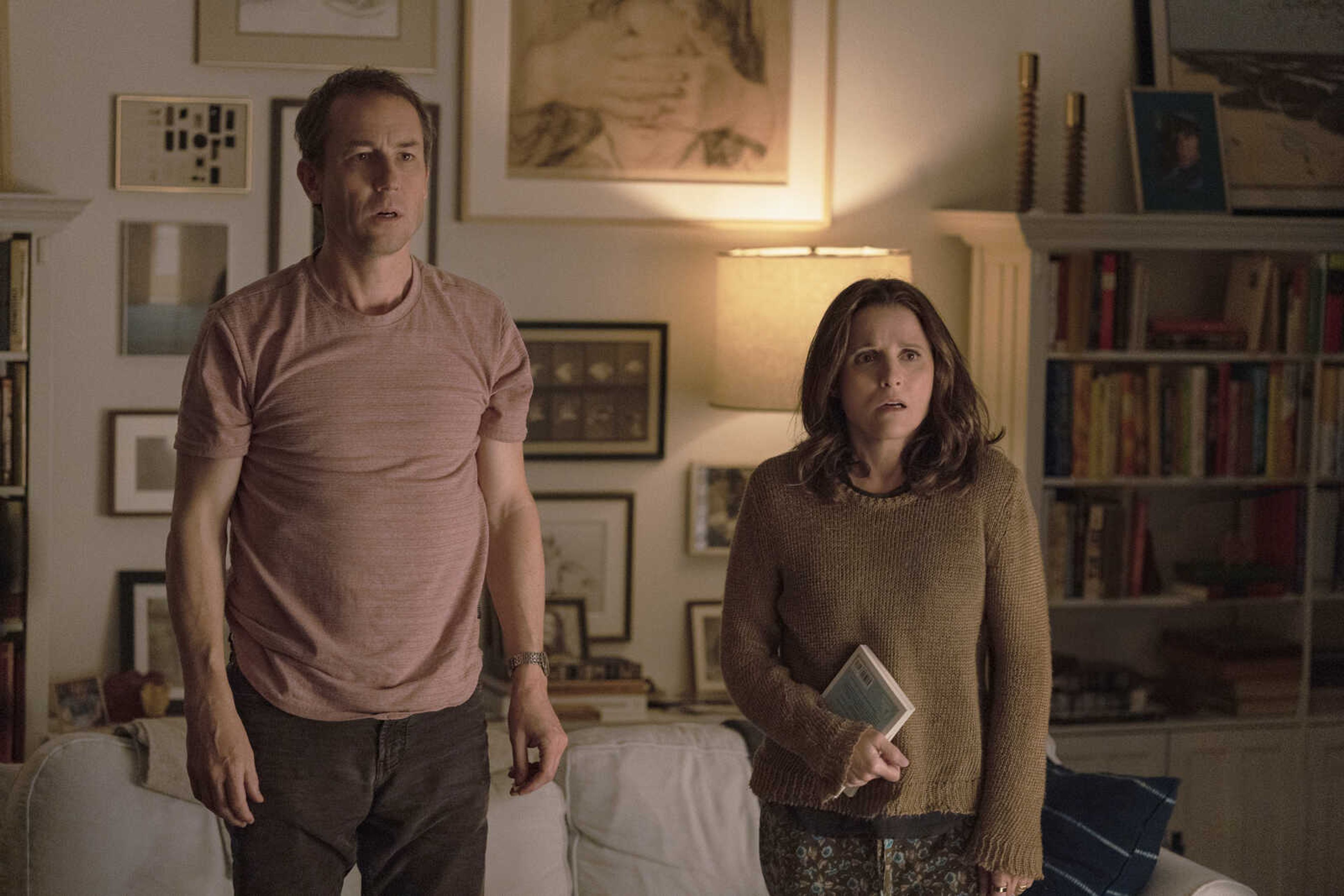Almodovar's dark side on view in latest film
NEW YORK -- Pedro Almodovar brings a small white pad to an interview, and while he speaks, he quietly sketches a detailed drawing of a pen sitting on the table. It seems he must always be creating pictures. The images in his latest film, "Bad Education," are some of the Spanish filmmaker's most dramatic yet: a thin line of blood dripping down the center of a young boy's face; a mishmashed printing of typewriter letters after a man's head falls dead on the keys...
NEW YORK -- Pedro Almodovar brings a small white pad to an interview, and while he speaks, he quietly sketches a detailed drawing of a pen sitting on the table.
It seems he must always be creating pictures. The images in his latest film, "Bad Education," are some of the Spanish filmmaker's most dramatic yet: a thin line of blood dripping down the center of a young boy's face; a mishmashed printing of typewriter letters after a man's head falls dead on the keys.
After 15 years of making mostly bright comedies, Almodovar's last two films, "All About My Mother" and "Talk to Her," garnered him much critical acclaim and an Academy Award for the screenplay of "Talk to Her." Though it will not be entered in the best foreign language film category this year, "Bad Education" will still likely receive another nomination -- a rarity for a non-English language film.
"Without being humble, I think I am having a good maturity," Almodovar, 55, says with a grin during an interview at a Manhattan hotel. "The best is always yet to come, that's what I feel."
But first, to make "Bad Education," Almodovar had to look to the past.
It's a highly personal film, 10 years in the making, that centers on the reunion of two Catholic school friends years after being sexually abused by their principal, Father Manolo. Meeting again in Madrid in the '80s, Enrique (Fele Martinez) is a film director who makes Ignacio (Gael Garcia Bernal) the star of his movie about their intertwined lives.
Reality and fiction refract against each other as a love triangle between the three dissolves into a noirish tale of deception and murder. Given that the main character is a filmmaker, Almodovar has often been questioned about the extent of autobiography in "Bad Education."
He says it is inspired by two priests from his Catholic boarding school who harassed several boys, but not him. Though Father Manolo clearly has a villainous aspect to him, he's also imbued with sympathy, a prisoner to his desires.
"There is a huge difference between a fiction character and real life," Almodovar says. "I'm more interested in the priest when he's no longer a priest and he gives up his passion for this young, beautiful, evil man."
The young man, played by Bernal in drag, is the irresistible femme fatale of this atypical film noir. While there are no cigarette-puffing detectives, it is the filmmaker -- the artist -- who seeks the truth.
"I'm fascinated by film noir. The best of drama and the best of tragedy is both there. I am interested in noir pictures where there are not necessarily lots of detectives and investigations going on, but where they speak to the dark side of the human character."
That is an uncharacteristic but increasingly dominant aspect of Almodovar's movies. Why is the man known by so many for the screwball chaos of films like "Women on the Verge of a Nervous Breakdown" now preoccupied by the "dark side" of people?
"It's true what you say, but I don't know why. It probably has to do with the fact that I live a lonelier life than before -- less colorful and more lonely."
That may come as a surprise considering that Almodovar is one of the most beloved people in all of Europe and South America. But he's increasingly preoccupied by his movies, and his trademark spiky black hair has grown mostly gray.
Like the plot of "Bad Education," perhaps the director is also growing more focused on the past. In October, he was the subject of a retrospective at the New York Film Festival, an experience that was very moving to him.
"I usually don't look back. So far, I have not been a nostalgic person. It's kind of terrible to look ahead all the time because life is always shorter. What you have left is always less."
But Almodovar is already looking forward not just to his next film, but his next four, one of which is a return to comedy -- if for no other reason than to satisfy the masses.
"I'm very successful with my last few movies, and I think the international consideration about my work is increasing, but when I'm on the street, people come up to me and say, 'Pedro, please, make a new comedy. We laugh so much with you' -- as if I had a shop and customers come in and say please make us another comedy!"
Two of his other projects, however, revolve around another director, this time one who goes blind. He says the films will have the same tone as "Bad Education."
If it seems like Almodovar is having difficulty putting down "Bad Education," it's because he is. The film ends somewhat abruptly with another memorable image (this time a symbolically closed, green gate) and an epilogue.
That epilogue, the director says, is the distillation of over 100 pages of unused script. He illustrates this by drawing on his pad a series of mountains. The film and epilogue, Almodovar explains, are only the peaks, with iceberg-like narrative hidden beneath.
"The epilogue of our lives," he says, typically looking forward, "is yet to be written."
Connect with the Southeast Missourian Newsroom:
For corrections to this story or other insights for the editor, click here. To submit a letter to the editor, click here. To learn about the Southeast Missourian’s AI Policy, click here.








